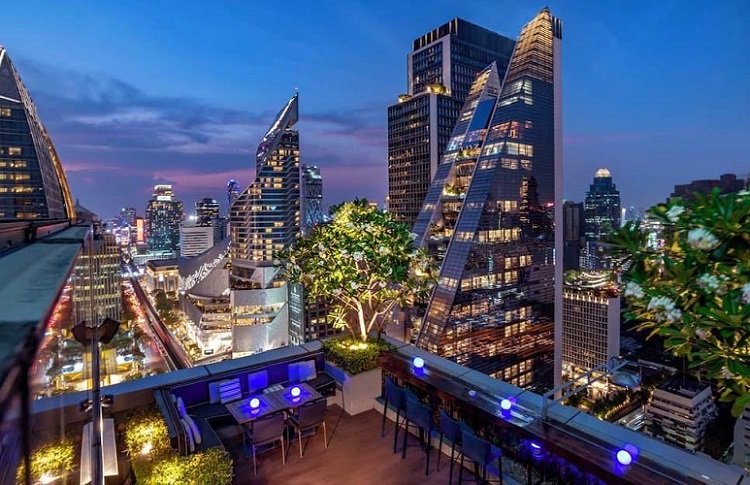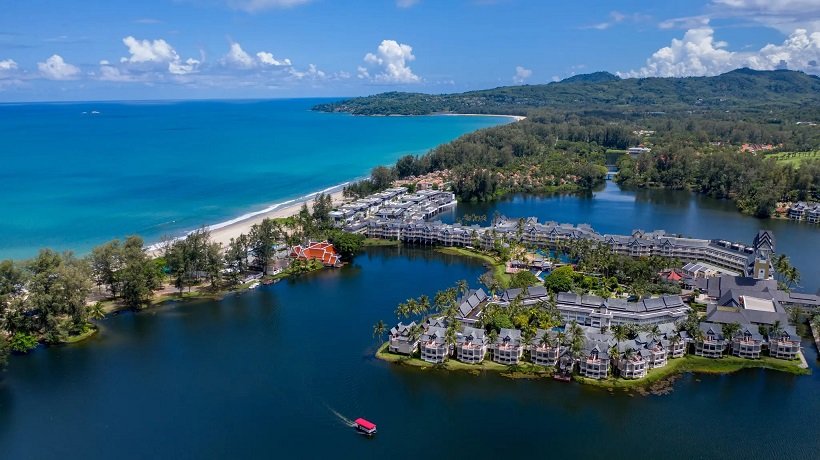Key points
- Thailand’s leading real estate giants are ramping up their expansion into hotels and retail projects to secure more reliable income streams and capture a new wave of sustainability-conscious travelers.
- Meanwhile, experts highlights the growing demand for branded residences — a hybrid model blending residential and hotel living that is now emerging as the industry’s next frontier.
- For the latest on the hotel market in Thailand, keep on logging to Thailand Hotel News.
Thailand Hotel News: Developers Redefine Growth Amid Tourism Slowdown
Thailand’s leading real estate giants are ramping up their expansion into hotels and retail projects to secure more reliable income streams and capture a new wave of sustainability-conscious travelers. As Chinese visitor numbers slump, the shift signals a broader transformation in Thailand’s tourism and property landscape. This Thailand Hotel News report reveals that developers are focusing on long-term resilience and diversified revenue sources, marking a significant shift away from traditional real estate models.

Thai developers accelerate hotel and retail investments to capture new sustainability-driven travel markets.
Image Credit: StockShots
Tourism Landscape Faces New Realities
According to the Real Estate Information Center (REIC) under the Government Housing Bank, international arrivals fell by 4.7% in the first half of 2025, totaling 16.68 million visitors. Most concerning was a 34.1% drop in tourists from China, historically Thailand’s largest market. Despite this setback, the nationwide hotel occupancy rate rose to 60.8%, up slightly from 59.1% last year, suggesting a steady flow of visitors from alternative markets such as India, Russia, and the United Kingdom. The southern region, buoyed by its world-renowned beach destinations, recorded the highest occupancy rate at 70.9%.
Developers Adopt Wait and Watch Strategy
While optimism remains, hotel supply is currently consolidating. Only 232 new hotels — totaling just under 9,000 rooms — were approved in the first half of 2025, marking a 34.6% drop year-on-year. Thailand now has 16,369 operating hotels comprising 703,751 rooms, a minor decline from the previous year. This slowdown indicates developers are carefully recalibrating their investments, monitoring economic trends, and waiting for stronger recovery signals before pursuing aggressive expansion.
Bangkok and Phuket Lead the Construction Revival
Despite cautious sentiment, investment momentum is returning, with hotel construction activity rising 29.6% year-on-year. The Bangkok metropolitan area experienced an extraordinary 230.7% surge in approved hotel space, reflecting developers’ confidence in long-term urban tourism growth. Phuket alone accounted for nearly one-third of all new hotel space nationwide, reaffirming its role as Thailand’s tourism crown jewel. Other high-growth areas include Chon Buri, Phang Nga, and Kanchanaburi, which are seeing fresh capital inflows from both domestic and international investors.

Phuket has the most number of new hotel developments
Image Credit: Angsana Laguna Phuket
Sustainability and Experience Define the New Market
Consultants from Cushman & Wakefield Thailand note that while Chinese arrivals plunged, markets like India and the UK have grown over 10%, helping stabilize hospitality and retail spending. The next phase of Thailand’s hotel development is being shaped by Gen Z travelers, who prefer boutique and lifestyle properties over standard resorts. Developers are responding with designs that emphasize sustainability, authenticity, and distinct local identity. Large property firms are also diversifying into recurring income sectors such as retail, converting commercial complexes into vibrant lifestyle hubs that merge shopping, dining, and leisure experiences under one roof.
Transformation Towards Long-Term Resilience
Industry experts predict that by 2026, competition will no longer revolve around pricing but around concept, branding, and environmental responsibility. Developers are forming strategic partnerships with international hotel, automotive, and fashion brands to elevate their projects’ prestige. However, operational costs and potential oversupply remain concerns. If occupancy levels fail to meet projections, high-debt developers could face liquidity pressure.
Even so, Thailand’s hospitality investment outlook remains robust. Data from JLL show hotel investment reached USD 301 million in the first half of 2025 and could surpass USD 650 million by year-end. Meanwhile, experts highlights the growing demand for branded residences — a hybrid model blending residential and hotel living that is now emerging as the industry’s next frontier. Developers capable of balancing design innovation, efficient operations, and authentic guest experiences will lead Thailand’s hospitality renaissance in the years ahead. The sector’s resilience, coupled with evolving traveler preferences, promises to redefine the nation’s tourism economy for decades to come.
For the latest on the hotel market in Thailand, keep on logging to Thailand Hotel News.

